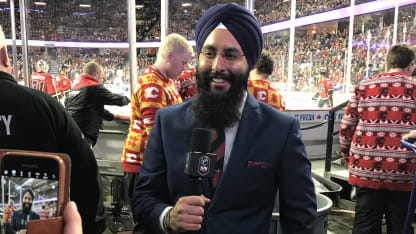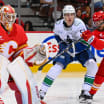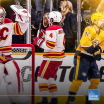CALGARY, AB -- Growing up in Brooks in the late '80s-early '90s, a Wayne Gretzky fan (but, hey, don't hold that against him), the son of two teachers, Harnarayan Singh spent much of his spare time mimicking his favourite hockey announcers on a toy microphone.
"I'd copy hosting the NHL Awards, between periods, intermissions and all that kind of stuff,'' recalls the groundbreaking Sikh broadcaster.
"I loved listening to all the announcers.
"I liked Ed Whalen, of course. But the person I really looked up to was always Ron MacLean. The encyclopedia of hockey, this guy. So smooth, the way he hosted.
"Bob Cole, too. All the big moments in the playoffs seemed to be called by Bob Cole. I loved his ability to play up the drama in the game. And still do.
"So it's just what I always wanted to do. I just didn't know if a guy like me would ever have a shot at it. I had other people caution me that the chances of this happening were very slim and not to get my hopes up too high.
"But thankfully my mom and dad'' - Surjit Kaur and Santokh - "said give it a shot and if it doesn't work out we'll switch directions.
"But certainly, give it a go."
Singh breaking barriers in hockey broadcast world
Flames TV's Harnarayan Singh made history when he became the first Sikh to ever broadcast a sporting event in English

![20160218_142149[1]](https://media.d3.nhle.com/image/private/t_ratio16_9-size20/f_auto/prd/jdkqq4pmjmywviy8q8yh.jpg)

















